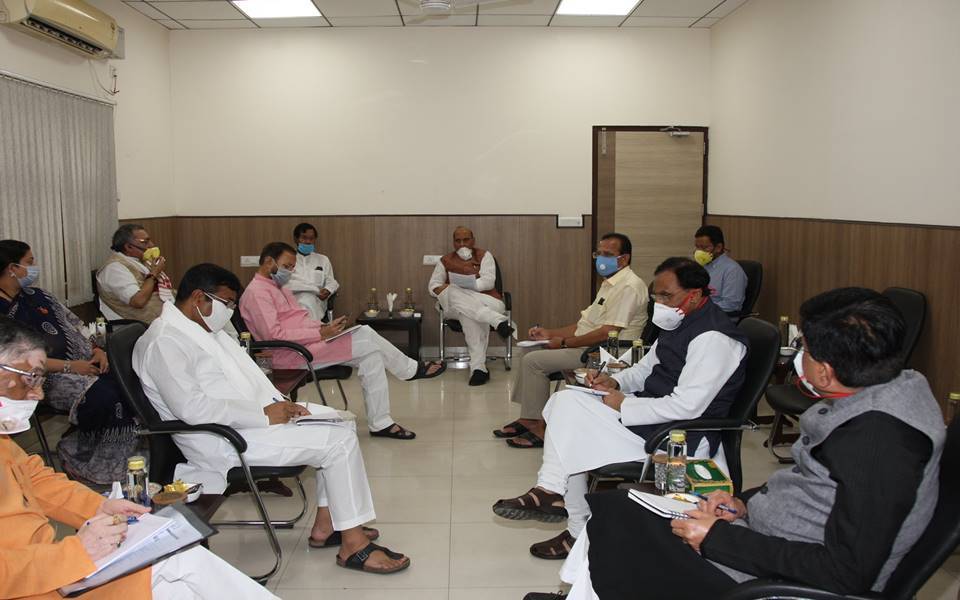
Govt reviews measures to ease lockdown in non-hotspot areas from April 20
The partial relaxation of lockdown restrictions will allow economic activities to resume to an extent and also will provide essential employment to daily wage workers.

The Centre is preparing to ease the lockdown imposed to contain the spread of coronavirus. On Saturday (April 18), a group of ministers led by Defence Minister Rajnath Singh discussed issues related to restoration of partial economic activity in non-hotspot zones across the country from April 20, 2020.
Rajnath Singh posted on Twitter that various important ways to mitigate the troubles faced by people and the role ministries can play in doing so were discussed in the meeting. He wrote that the guidelines to allow certain limited activities after April 20, 2020 and the measures announced by the Reserve Bank of India (RBI) amid the coronavirus outbreak were appreciated. The meeting was held at the Defence Minister’s residence, according to an HT report.
Related News: Lockdown not a solution, need aggressive COVID-19 testing: Rahul
The group of ministers met one day after the Prime Minister’s office organised a preparatory meeting with officials of seven key ministries to discuss details of partially relaxing the present lockdown. This step is aimed at restarting economic activity in select sectors of the Indian economy.
Earlier, the meeting chaired by Prime Minister Narendra Modi’s Principal Secretary P K Mishra majorly focused on getting back workers to factories. The effective implementation for a partial exit from lockdown and the guideline which the states need to follow as laid out by the Home Ministry was also discussed.
The partial relaxation of lockdown restrictions will allow economic activities to resume to an extent and also will provide essential employment to daily wage workers. Pradhan Mantri Garib Kalyan Yojana disbursed Rs 31,000 crore to more than 33.25 crore beneficiaries. The step was aimed at elevating troubles of economically weaker sections of society.


